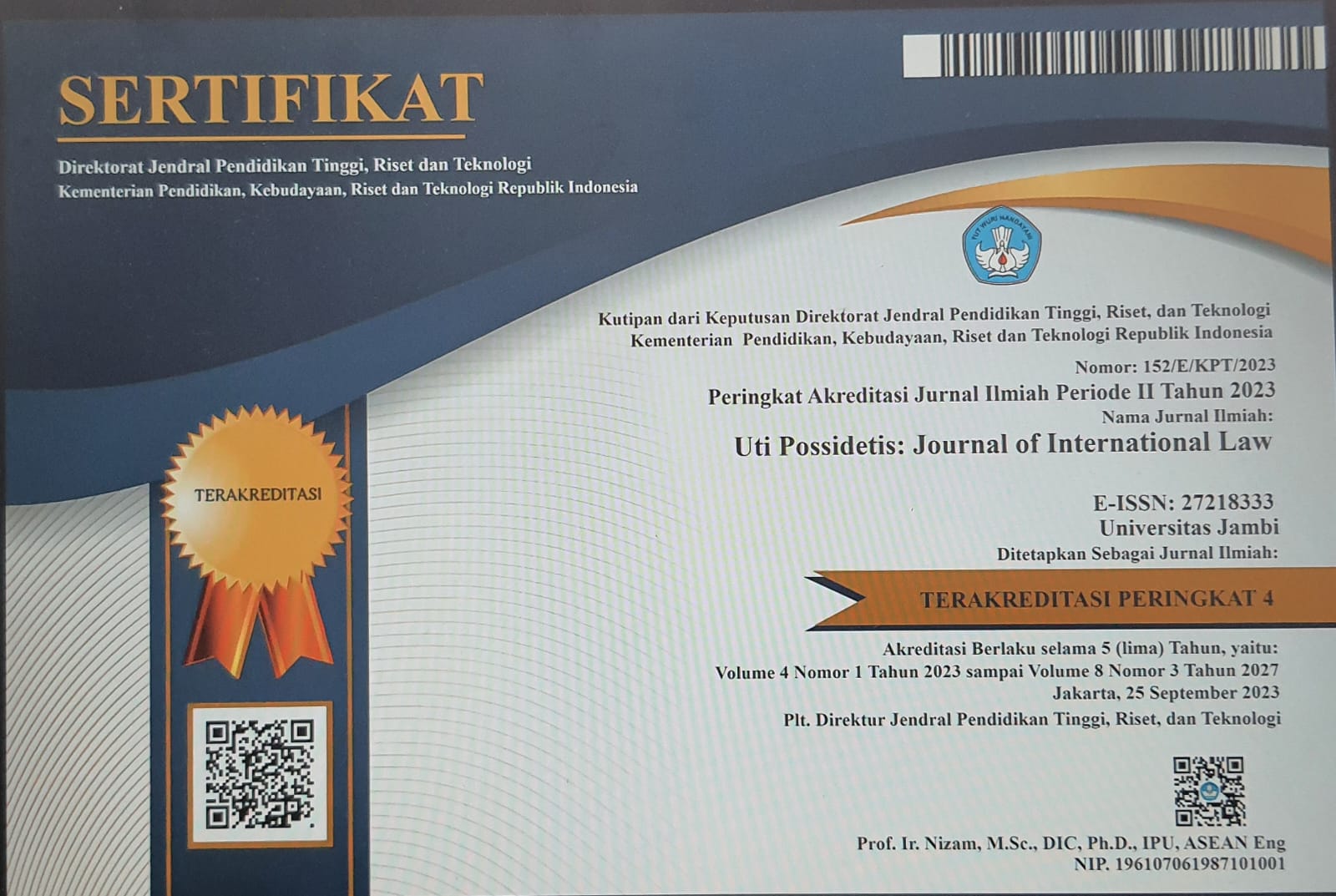Polluter Pays Principle Terkait Pertanggungjawaban Corporate PTTEP Australasia Terhadap Pencemaran Minyak Di Laut Timur Indonesia
DOI:
https://doi.org/10.22437/up.v2i2.11839Keywords:
Class Action, Polluter Pays Principle, ResponsibilityAbstract
This research is aimed to analyze and determine the 16th provision principle of the declaration on environment and development, namely the polluter pays principle, as one of the state’s form of accountability towards the polluting across borders between PTTEP Australia and Indonesia. This is a juridical research, which analyzes the issue discussed through the use of many realted sources. The Polluter Pyas Principle, as a form of State responsibility in environmental pollution, has some advantages and disadvantages when applied as a recommendation by the OECD (Organization for Economic Cooperation and Development). From a legal perspective, this principle can be applied as a civil liability law, whereas from an economic perspective, it can be viewed as effort to control pollution by means which the polluter has an obligation to pay for the environmental pollution that he/she caused. Even so this principle also has its weakness, in an economic approach this principle is difficult to determine the determination of the cost of loss. In some countries themselves have applied this principle in handling cases of environmental pollution. In the case of cross-border environmental pollution, the principle of good neighborliness and the principle of state responsibility in dealing with pollution cases as a sign of State’s goodwill to comply with existing international law. The case of environmental pollution itself is not only the State that can sue, but a group of people or the community can also sue, if they feel harmed by the pollution that occurs. One of them is by carrying out Class Action in holding accountable for the consequences of pollution that has occurred, and is detrimental to a group or large number of people. Even though international environmental law is a soft law, it can become hard law depending on the pollution case that occurs. Even so, International Environmental Law contained in the Stockholm Declaration, Rio de Jeneiro, Civil Liability Convention and other related international arrangements have been very good in their regulatory fields. Only the state which ratifies the convention applies according to the pollution case that occurs.
Downloads
References
Referensi
Instrumen Hukum
Convention on Civil Liability for Oil Damage 1992 (CLC 1992)
Deklarasi Stockholm 1972
Deklarasi Rio De Jeneiro 1992
Konvensi Hukum Laut 1982 (UNCLOS 1982)
Undang-Undang Nomor 32 Tahun 2009 Tentang Perlindungan Pengelolaan Lingkungan Hidup
Buku
Silalahi, Daud. Pengaturan Hukum Lingkungan Laut Indonesia dan Implikasinya secara Regional. Jakarta. Pustaka Sinar Harapan. 1992.
Wijoyo, Suparto dan A’an Efendi. Hukum Lingkungan Internasional. Jakarta Timur. Sinar Grafika. 2017.
Artikel
Darma, Malvin Edi. Penerapan Polluter Pays Principle dan Strict Liability Terhadap Pelaku Pembakaran Hutan. Jurnal Hukum Adigama.
Gandar Mahojwala Paripurno. Prinsip Pencemaran Membayar Untuk Mnedorong Akses Kompensasi Di Kebijakan ASEAN Dalam Kasus Polusi Kabut Asap Lintas Batas. Jurnal Hukum Lingkungan. Vol. 4. 2018.
Heryandi, et al. Hukum Laut Internasional Dalam Perkembangan. Justice Publisher. 2015.
Meinarni, Ni Putu Suci. Hambatan Dalam Penyelesaian Sengketa Kasus Minyak Montara. Jurnal Komunikasi Hukum. Universitas Pendidikan Ganesha Singaraja. Vol. 3. No. 2. 2017.
Meinarni, Ni Putu Suci. Upaya Hukum Dalam Penyelesaian Sengketa Pencemaran Lingkungan Laut Dalam Kasus Tumpahan Minyak Montara Di Laut Timor. Jurnal Magister Hukum Udayana. Vol. 5. No. 4. 2016.
Muhdar, Muhammad. Eksistensi Polluter Pays Principle Dalam Pengaturan Hukum Lingkungan. Mimbar Hukum. Vol. 21. No. 1. 2009.
Downloads
Published
How to Cite
Issue
Section
License
Copyright (c) 2021 Annisah Dian Utami Panjaitan, Novianti Novianti, Mochammad Farisi

This work is licensed under a Creative Commons Attribution 4.0 International License.







